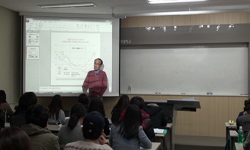Because hemodialysis patients with end stage renal disease(ESRD) cannot be cured of their underlying conditions, the aim of therapeutic programs has been focused on functional status, well-beings and quality of life(QOL). This study was performed to e...
http://chineseinput.net/에서 pinyin(병음)방식으로 중국어를 변환할 수 있습니다.
변환된 중국어를 복사하여 사용하시면 됩니다.
- 中文 을 입력하시려면 zhongwen을 입력하시고 space를누르시면됩니다.
- 北京 을 입력하시려면 beijing을 입력하시고 space를 누르시면 됩니다.

혈액투석환자에서 환자의 삶의 질에 미치는 요인 평가 = The Factors Influencing the Health-related QOL in Hemodialysis Patients
한글로보기https://www.riss.kr/link?id=A40021579
- 저자
- 발행기관
- 학술지명
- 권호사항
-
발행연도
2002
-
작성언어
Korean
- 주제어
-
KDC
518.000
-
등재정보
KCI등재
-
자료형태
학술저널
-
수록면
269-282(14쪽)
- 제공처
-
0
상세조회 -
0
다운로드
부가정보
다국어 초록 (Multilingual Abstract)
Because hemodialysis patients with end stage renal disease(ESRD) cannot be cured of their underlying conditions, the aim of therapeutic programs has been focused on functional status, well-beings and quality of life(QOL). This study was performed to evaluate the factors influencing the health-related QOL in hemodialysis(HD) patients using the U.K. Standard Short-Form 36(SF-36) Health Survey. The supposed influencing factors were designed into three variables of social characteristics, medication teaching by pharmacist and laboratory findings. The study was performed in the hemodialysis unit of Ajou University Hospital from January to August 2000. A total of 74 ESRD patients on HD successfully completed this study, and they were divided into 2 groups. Group A consisted of those patients who received the medication teaching offered by the pharmacist and group B consisted of those patients who didn't receive the medication teaching. Group A(n=57) scored higher in items of the knowledge of medication and positive recognition for medication than group B(n=18) (p=0.014). However, the medication compliance rate was not statistically different between the two groups. Sixty percent of patients preferred both written and verbal methods of educational teaching. The significant factors influencing the QOL in HD patients were age, occupation and medication teaching. Younger patients with the job marked higher scores in SF-36 mean value. In conclusions, occupation, age and medication teaching were the factors influencing the QOL in HD patients. This result indicates that patient education and counseling have a significant influence on QOL for HD patients.
동일학술지(권/호) 다른 논문
-
서울아산병원에서 신장이식 환자에 대한 약사의 임상업무 소개
- 한국병원약사회
- 박옥선
- 2002
- KCI등재
-
급성 신부전에서의 필수 아미노산으로 구성된 TPN의 효과
- 한국병원약사회
- 서영희
- 2002
- KCI등재
-
신생아 집중치료를 받았던 극소 저출생체중아의 입원중 성장에 관한 연구
- 한국병원약사회
- 김승란
- 2002
- KCI등재
-
- 한국병원약사회
- 장승연
- 2002
- KCI등재




 RISS
RISS



